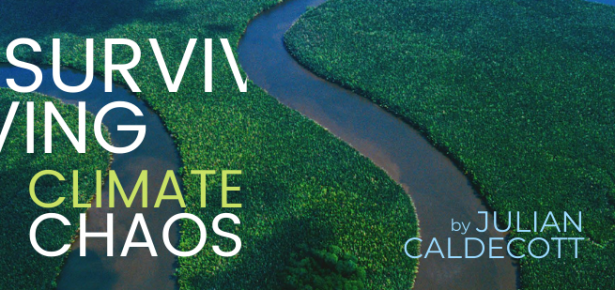
Surviving Climate Chaos is being published into a new world of lethal fires, floods and record-breaking temperatures, while the IPCC warns us that we are in the last decade before Arctic, oceanic and equatorial tipping points take all choices out of human hands. This emergency calls for far greater focus and impact in our climate change response, and for the strengthening of communities and ecosystems everywhere against climate chaos. It also calls for greater clarity in how we think about the social and ecological systems in which we live, the stresses that they experience, and how we and they adapt to new and dangerous circumstances.
The United Nations adopted ‘leave no one behind’ as a guiding principle and central promise of the 2030 Agenda for Sustainable Development and the Sustainable Development Goals. It “represents the unequivocal commitment of all UN Member States to eradicate poverty in all its forms, end discrimination and exclusion, and reduce the inequalities and vulnerabilities that leave people behind and undermine the potential of individuals and of humanity as a whole.” But all of this is intensely political and none of it is easy to accomplish within economic systems that are seldom if ever designed to ensure equality of treatment, opportunity, security and well-being. So the hunt is on for ways to go under or around the barriers to equality, thus ensuring that as many people and communities as possible can survive climate chaos.
“The most reliable, cheap and equitable way to ensure than no one is left behind is for individual hardship to be detected by other people – neighbours rather than machines, companies or functionaries of the state, and acted on by them alerting public services and monitoring the response. This offers a way to implement reliably policies of equity that require neither states nor corporations for their primary effectiveness. The key issue then becomes how to ensure that nations and corporations support and enable the operations of small groups, rather than replacing them with larger-scale systems that conflict with the ordinary sociability of our species. This choice, of whether to work with organic society or replace it with a machine state, is fast becoming urgent as the technology needed for universal surveillance is developed by corporations and bought by governments.” (pages 83-84).
Title: Surviving Climate Chaos by Strengthening Communities and Ecosystems
Author: Julian Caldecott
Paperback ISBN: 9781108793780
Hardback ISBN: 9781108840125
Latest Comments
Have your say!